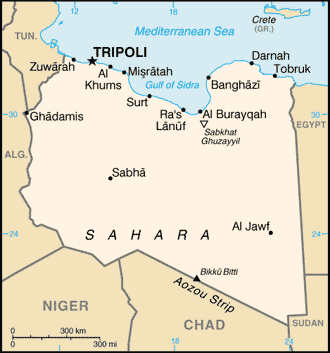The release of convicted Lockerbie bomber Abdelbaset al-Megrahi was “unjustified,” four Democratic Senators conclude in a report that was released Tuesday. Megrahi was the only person who has been convicted of the Pan Am Flight 103 bombing that killed 270 people in 1988. He was sentenced to life in prison in 2001, but was released in August 2009 on compassionate grounds after doctors told a court that he was facing terminal prostate cancer and only had three months to live. Now, 16 months later, Meraghi’s still alive—and it appears that political pressure may have led to his release.
Since then, one of the doctors that testified about Megrahi’s condition has said he was paid by the Libyan government to make that determination, and Megrahi could actually live another ten years. His release made it back into the news over the summer when, in the midst of BP’s big Gulf oil spill, allegations were raised that BP lobbied for his release in order to secure a $900 million deal to drill in Libya’s Gulf of Sidra.
In July, four Democratic senators—New Jersey’s Robert Menendez and Frank Lautenberg and New York’s Chuck Schumer and Kirsten Gillibrand—called for an investigation by the State Department. On Tuesday, the four released their own report on the release, concluding that “the three-months-to-live prognosis was unwarranted and, thus, the basis for his release on compassionate grounds was unjustified.” The report draws on available government documents in the involved countries, staff interviews with American, UK, and Scottish officials, and input from medical and business experts. The report looks at two questions: whether medical evidence actually supported al-Megrahi’s three-month prognosis, and if not, what motivated the UK and Scottish governments to support his release.
On the first, the report concludes:
The three-month prognosis given to al-Megrahi by Scottish doctors was inaccurate and unsupported by medical science. During the course of this investigation, Scottish officials presented two conflicting factual scenarios: one stating that al-Megrahi did not receive chemotherapy and another stating that he did. Neither scenario supports a three month prognosis.
On the second question, the report notes that both the Scottish and British governments “refused to respond to questions.” It concludes that the UK government played a “direct, critical role” in Megrahi’S release—motivated by the “threat of commercial warfare” with Libya. In particular, energy companies in the UK gunning for access to Libya’s oil and natural gas resources, the report states. The report also details some historical examples of the UK government intervening on behalf of the British oil giant BP in particular. From the report:
The U.K. knew that in order to maintain trade relations with Libya, it had to give into political demands. Faced with the threat of losing the lucrative BP oil deal and other commercial ties, the U.K. agreed to include al-Megrahi’s release in a Prisoner Transfer Agreement (PTA) with Libya. Around the same time as al-Megrahi’s release, the U.K. and Libya were moving forward with other lucrative deals. Normalizing relations with Libya – and al-Megrahi’s release – clearly benefited U.K. business interests.
The Scottish government, the report states, seems to have bowed to pressure from the UK:
Evidence suggests that U.K. officials pressured Scotland to facilitate al-Megrahi’s release. The U.K. communicated to the Scottish Government that there were significant national interests in expanding trade relations with Libya. While Scotland has enjoyed a measure of independence from the U.K. since 1998, the U.K. government retains considerable powers over Scottish affairs. Thus, it would not be surprising that the Scottish Government would be susceptible to pressure from the U.K. The Scottish Government may also have been influenced by lobbying from the Qatar government and the opportunity act independently on the world stage.
The report is an interesting read, but what will be more interesting is if anything comes of it. Both Scottish and British officials declined to appear before a hearing by the Senate Committee on Foreign Relations on Megrahi’s release earlier this year. The Obama administration, for its part, has said it believes Megrahi should be returned to prison.














